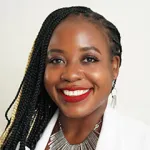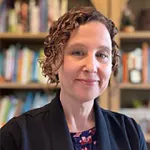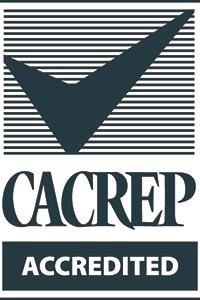Impact Individuals and Communities
Empower primary, middle, and high school students to overcome personal challenges and achieve their goals with our Master of Science in Education in School Counseling. Develop your P-12 counseling philosophy with a like-minded network of individuals who strive to make today's students happy, well-adjusted adults in the future.
- Designed to prepare you for the licensed professional counselor exam
- Perfect for people already in counseling that are seeking licensure and those new to the field
- Practice what you learn in the community during your practicum and two internships
- Option to add an Advanced Certificate in Clinical Mental Health Counseling directly after your master's
About The Program
-
The online MSED in School Counseling is designed to provide you with the skills necessary to better serve our youth. In this program you will develop:
- Individual and Group Counseling Competencies – Learn different approaches for prevention, intervention, and crisis intervention, and analyze and use data to improve the efficacy of your programs.
- Cultural Competencies – Explore the issues of diversity, equity, advocacy, and opportunity, and understand the factors that influence the personal, social, and intellectual functioning of different cultures.
- Communication – Master the vital skills of listening, socialization, boundary setting, and empathy.
- Critical Thinking – Evaluate relevant research with a scientific mind to make assessments, diagnoses, and develop a treatment.
- Business of Counseling – Examine the profession of counseling, learning a counselor’s role and ethical and legal responsibilities.
-
-
-
-
The online MSED in School Counseling is designed to provide you with the skills necessary to better serve our youth. In this program you will develop:
- Individual and Group Counseling Competencies – Learn different approaches for prevention, intervention, and crisis intervention, and analyze and use data to improve the efficacy of your programs.
- Cultural Competencies – Explore the issues of diversity, equity, advocacy, and opportunity, and understand the factors that influence the personal, social, and intellectual functioning of different cultures.
- Communication – Master the vital skills of listening, socialization, boundary setting, and empathy.
- Critical Thinking – Evaluate relevant research with a scientific mind to make assessments, diagnoses, and develop a treatment.
- Business of Counseling – Examine the profession of counseling, learning a counselor’s role and ethical and legal responsibilities.
Curriculum Highlights
- Individual and Group Counseling Competencies – Learn different approaches for prevention, intervention, and crisis intervention, and analyze and use data to improve the efficacy of your programs.
- Cultural Competencies – Explore the issues of diversity, equity, advocacy, and opportunity, and understand the factors that influence the personal, social, and intellectual functioning of different cultures.
- Communication – Master the vital skills of listening, socialization, boundary setting, and empathy.
- Critical Thinking – Evaluate relevant research with a scientific mind to make assessments, diagnoses, and develop a treatment.
- Business of Counseling – Examine the profession of counseling, learning a counselor’s role and ethical and legal responsibilities.
Below is a sample list of courses you will be required to complete for the online Masters in School Counseling program. To view a full list, please fill out the form and download a program guide.
To acquaint the beginning graduate student with the practice of diagnosing psychopathology. The definitions and distinctions between the various mental disorders are presented, as well as an introduction to the current research in the field, a discussion of the numerous continual controversial issues, and a review of the databased treatment approaches. In addition, this course will assist the graduate student to understand the nature, needs, and problems of individuals at all developmental levels over the life span and within a multicultural and diverse society.
This course provides a basic introduction to group process and group counseling. The class will blend theory with practice. The course will explore various theoretical approaches to group practice, as well as the four group work specializations developed by the Association for Specialists in Group Work: Task, Psychoeducational, Counseling, and Psychotherapy.
This course provides an introduction to cross cultural counseling. The course examines three distinct areas: cultural awareness, knowledge of other cultures, and allows students to look at the skills component. Students are taught through lectures, exercises, videotapes and guest speakers. The course offers an introduction to the lifelong continuous journey of counseling clients from diverse populations.
This course is designed to provide counseling interns with an opportunity to perform all activities that a regularly employed school counselor would be expected to perform. Students seeking certification in school counseling must complete a minimum of 300 clock hours in an approved school setting under the supervision of a certified school counselor with at least two years of experience. Professional portfolios are developed.
Prerequisites: Formal faculty approval following successful completion of the Practicum.
This course is an introduction to facilitating the counseling relationship with children by utilizing play media to facilitate expression, self-understanding, and personal growth and development. This course provides students with the philosophical basis for play therapy, including a review of the history of play therapy, how to develop a relationship with a child through a theoretical framework, and an introduction to play therapy best practices. Students will become familiar with play therapy micro-skills, the purpose and application goals of play therapy, therapeutic stages and themes, ethical issues, cross cultural / diversity implications, basic developmental and neurological implications, and applications to a variety of populations and therapeutic contexts.
School Counseling Specialty Courses
This is an intermediate class designed to improve the clinical skills of graduate students in Counselor Education by providing them with an in-depth application experience in the Multidimensional Approach to the diagnosis and treatment of psychological disorders of children and adults. This approach emphasizes the genetic, biological, race, gender, class, religious difference, sexual orientation and social learning factors as they influence the individual and their psychological disorder.

Ready to Learn More?
Next Term: Summer 2026
Start Date: May 18, 2026
Limited seats are available. Secure your spot today!
MSED School Counseling Graduate Statistics
|
Statistics |
2024-2025 |
|---|---|
|
# of Graduates |
27 |
|
Completion Rate |
61% |
|
Licensure Examination Pass Rate |
100% |
|
Job Placement Rate |
100% |
Hear From a Student
What is it like to be in our online School Counseling program?
Our program is designed to thoroughly prepare you to become a licensed school counselor. In this video, current student Jessica Stein talks about studying online, faculty, classmates, practicum and more.
Watch Jessica’s video to learn more about being a St. Bonaventure University online master’s in school counseling student.
Learn From Our Dedicated Faculty

Ebony White
Associate Professor
Dr. White is a counselor, advocate, activist, speaker, trainer, researcher, and mental health expert, with more than a decade of experience as a counselor educator.
Learn More
Chad Luke
Program Director and Faculty Member, School of Education
The author of more than 25 refereed articles and seven books, Dr. Luke has clinical experience with addictions, children and adolescents, unhoused adults, college students, and other adults.
Learn More
Deborah L. Duenyas
Professor of Counselor Education, School of Education
Dr. Duenyas worked in an array of clinical settings, including private practice, the Cleveland Clinic’s Chronic Pain Rehabilitation Program, as a school-based counselor, and a community agency non-profit organization.
Learn MoreFrequently Asked Questions
Our program, like many others, prepares you to meet all the requirements of a licensed counselor - it sets you up for success when you take your professional counselor exam afterward. Our graduates have a 100 percent pass rate on the exam, and we credit this outstanding result to a focused curriculum, internship placement assistance, and dedicated support from faculty and advisors.
Yes, SBU partners with students as they approach the practicum and internship courses in the MSED program. SBU supports students throughout the internship approval process to ensure a high-quality experience that meets program requirements. Students are strongly encouraged to begin networking about six months before the practicum starts to ensure all approvals are completed before beginning the 100-hour practicum and the two 300-hour internships.
Time is precious - use it wisely. By doing your master’s online, you are not just eliminating the time it takes to commute to and from campus. You also have the option to choose what day and time you study because courses are delivered asynchronously. Successful students display grit, are well organized (for example, develop week-by-week plans) and lean on support from friends and family when needed.
You will have a Student Success Advisor to lean on for support during your program. Faculty are also contactable by phone and email via MySBU.
Courses will include a variety of videos, live sessions, role plays, demonstrations, discussion boards, and weekly interactive lessons for review.
The online Master of Science in Education - School Counseling program costs $825 per credit hour. The total investment for this program is $49,500 for 60 credit hours, excluding fees.
We will work with you to identify the different financial aid options available to you as an online student. To learn more about financial aid click here.
You must successfully complete all 60 credits, including passing your clinical experience and comp exam and maintain a cumulative GPA of 3.0 or higher.
Acceptance of transfer credits can vary on a case-by-case basis and by program but not to exceed 6 credits. Master’s-level courses are not permitted to replace doctoral-level courses. All transfer credits must be approved by the program director. Please speak with an enrollment advisor for more information.






